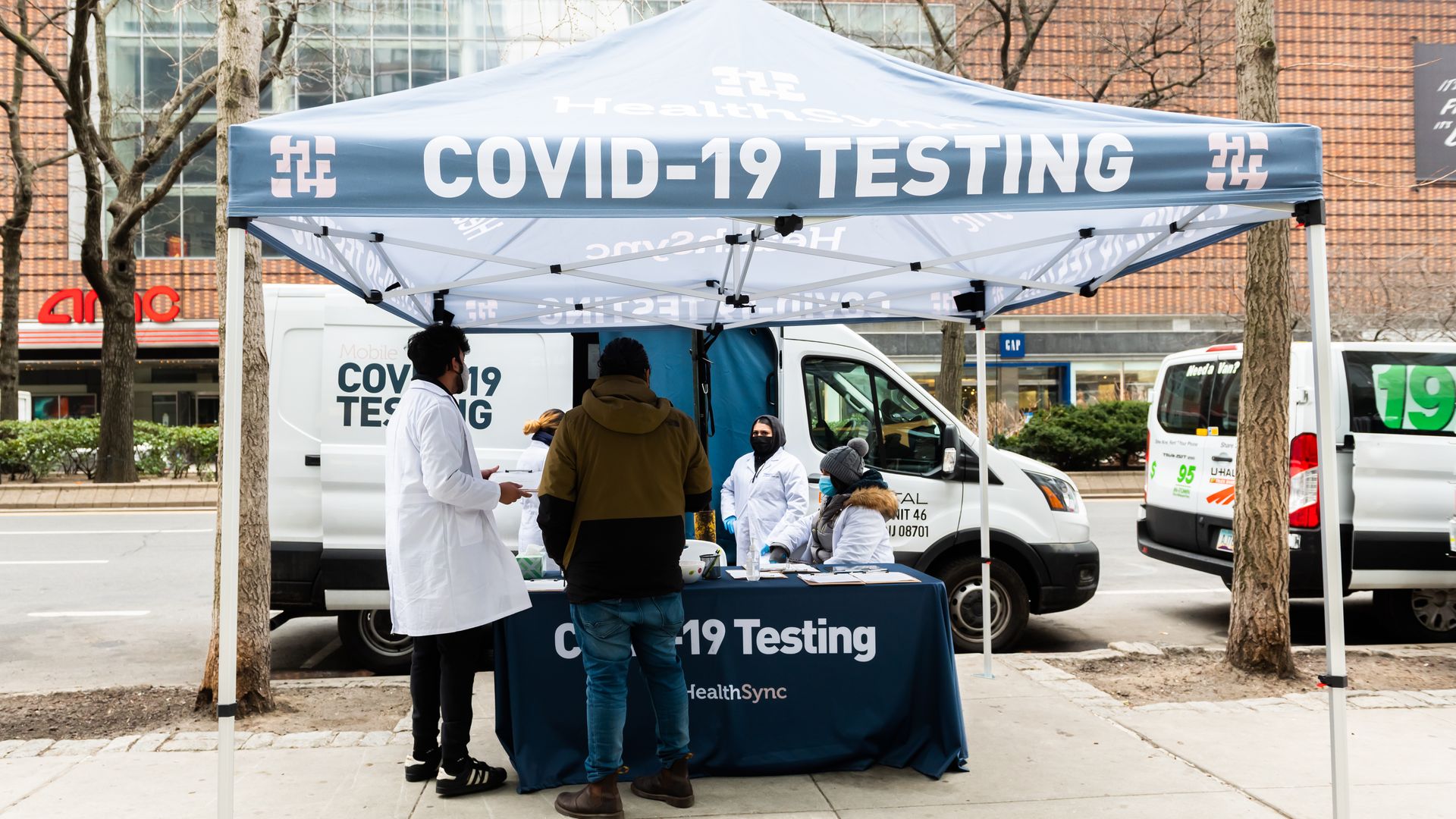Estimates show nearly 40,000 children in U.S. have lost a parent to COVID-19
Add Axios as your preferred source to
see more of our stories on Google.

Photo: Noam Galai via Getty Images
Nearly 40,000 children have lost a parent to the coronavirus, according to a new model published Monday in the journal JAMA Pediatrics.
Why it matters: Children who lose a parent are at greater risk of traumatic grief, depression, poor educational outcomes, and unintentional death or suicide, the authors write. Over 500,000 people have died from COVID-19 in the U.S.
By the numbers: The number of children who have experienced a parent dying of the coronavirus is "staggering," said the research letter, which was led by Stony Brook University's Rachel Kidman.
- Black children made up 20% of those who have lost a parent to the disease despite comprising only 14% of children in the U.S.
- Each coronavirus death leaves 0.078 children between the ages of 0 and 17 parentally bereaved, the model estimates, representing a 17.5–20.2% increase in parental bereavement absent the coronavirus.
- That means 37,300 children between the ages of 0 and 17 — three-quarters of whom were adolescents — had lost at least one parent to the coronavirus as of February this year. Factoring in excess deaths bumps the number to 43,000 children.
A natural herd immunity strategy that "results in 1.5 million deaths demonstrates the potential effect of inaction: 116,900 parentally bereaved children."
- For comparison, the authors noted, the 9/11 attacks left 3,000 children without a parent. "The burden will grow heavier as the death toll continues to mount," they wrote.
- The estimates rely on modeling, not survey or administrative data, and do not include bereavement of nonparental primary caregivers, according to the letter.
What they're saying: "Sudden parental death, such as that occurring owing to COVID-19, can be particularly traumatizing for children and leave families ill prepared to navigate its consequences," the letter states.
- "Moreover, COVID-19 losses are occurring at a time of social isolation, institutional strain, and economic hardship, potentially leaving bereaved children without the supports they need."
